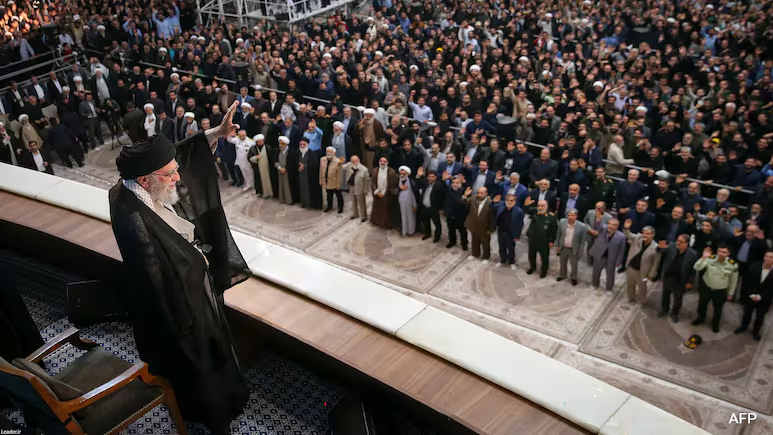SC stresses on independence of tribunals, directs Govt to constitute National Tribunals Commission
New Delhi: The Supreme Court on Friday directed the Centre to constitute a National Tribunals Commission (NTC) which would act as an independent body to supervise appointments and functioning as well as take care of the administrative and infrastructural needs of tribunals across the country.Stressing on the imperative need to ensure that tribunals discharge the judicial functions without any interference of the executive whether directly or indirectly, the apex court said that till NTC is constituted, a separate wing in the Ministry of Finance shall be established to cater to the requirements of tribunals.Observing that setting up of such commission would enhance the image of tribunals and instil confidence in the minds of litigants, a bench headed by Justice L Nageswara Rao said dependence of tribunals for all their requirements on the parent department would not extricate them from the control of the executive .Judicial independence of the tribunals can be achieved only when the tribunals are provided the necessary infrastructure and other facilities without having to lean on the shoulders of the executive. This can be achieved by establishment of an independent National Tribunals Commission as suggested above, said the bench, also comprising Justices Hemant Gupta and S Ravindra Bhat.The observations by the apex court came in its judgement delivered on a batch of pleas challenging the constitutional validity of the Tribunal, Appellate Tribunal and other Authorities (Qualification, Experience and Other Conditions of Service of Members) Rules, 2020.The Union of India shall constitute a National Tribunals Commission which shall act as an independent body to supervise the appointments and functioning of tribunals, as well as to conduct disciplinary proceedings against members of tribunals and to take care of administrative and infrastructural needs of the tribunals, in an appropriate manner, the bench said in its 68-page verdict.The apex court said that to stop the dependence of tribunals on their parent departments for routing their requirements and to ensure speedy administrative decision making, as an interregnum measure, we direct that there should be a separate tribunals wing’ established in the Ministry of Finance, Government of India to take up, deal with and finalize requirements of all the tribunals till the National Tribunals Commission is established.It said that till amendments are carried out in 2020 Rules, the search-cum-selection committees should comprise of Chief Justice of India or his nominee as the chairperson and others, including the outgoing chairman or president of the tribunal in case of appointment of chairman or president and secretary to the Ministry of Law and Justice.It said that Rule 4(2) of the 2020 Rules shall be amended to provide that the search-cum-selection committee shall recommend the name of one person for appointment to each post instead of a panel of names for appointment to each post and another name may be recommended to be included in the waiting list.The chairpersons, vice-chairpersons and the members of the tribunal shall hold office for a term of five years and shall be eligible for reappointment. Rule 9(2) of the 2020 Rules shall be amended to provide that the vice-chairman, vice-chairperson and vice-president and other members shall hold office till they attain the age of sixty-seven years, the bench said.It said that the Centre shall make serious efforts to provide suitable housing to the chairman or president and other members of the tribunals and if it is not possible, the government shall pay the chairman or president and vice-chairman or vice-president an amount of Rs 1.5 lakh per month as house rent allowance and Rs 1.25 lakh per month for other members with effect from January 1, 2021.The apex court said that the 2020 Rules shall be amended to make lawyers with an experience of at least 10 years eligible for appointment as judicial members in the tribunals and while considering their appointment, the search-cum-selection committee shall take into account the experience of the advocate at the bar and their specialization in the relevant branches of law.Rule 8 of the 2020 Rules shall be amended to reflect that the recommendations of the search-cum-selection committee in matters of disciplinary actions shall be final and the recommendations of the search-cum-selection committee shall be implemented by the Central Government, it said.It directed that the Centre shall make appointments to tribunals within three months from the date on which the search-cum-selection committee makes recommendations.It said any appointments made after the 2020 Rules came into force on February 12, 2020 shall be governed by it subject to modifications and appointments made under the 2020 Rules till the date of this verdict, shall not be considered invalid.It said in case selection committees have made recommendations in accordance with the 2020 Rules, appointments shall be made within three months from today and shall not be subject matter of challenge on the ground that they are not in accord with this judgment.It said chairpersons, vice-chairpersons and members of the tribunals appointed prior to February 12, 2020 shall be governed by the parent statutes and Rules as per which they were appointed.
Three Section Officers placed as Under Secretaries in J&K Secretariat
Jammu : The Jammu and Kashmir Government has approved the placement of three Section Offic…







